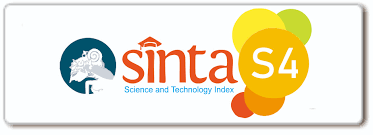Meningkatkan Kreativitas Dan Nilai Hasil Belajar PAI Materi Menghindarkan Diri Dari Pergaulan Bebas Dan Perbuatan Zina Melalui STAD
Di SMK Negeri 3 Linggabuana
DOI:
https://doi.org/10.47200/awtjhpsa.v2i1.1362Keywords:
creativity, learning outcomes, Islamic education, STAD, vocational high SchoolAbstract
The purpose of the study was to improve the learning process, creativity and learning outcomes of class X PSPT students at SMK Negeri 3 Linggabuana using the STAD cooperative learning model. The type of research is classroom action research. Research subjects 34 students. Data collection techniques with observation, test and documentation techniques. Data validation is democratic, process, and dialogic validation. Quantitative data analysis techniques. Increased learning creativity of 10 students (29.41%) in the initial conditions, to 20 students (58.82%) in the first cycle and 31 students (91.18%) in the last cycle from the limit of 85% increased learning creativity. The data for learning completeness in the initial conditions were 7 students or 20.59%. In the first cycle 17 students (50.00%) and in the second cycle 30 students (88.24%) from the limit of 85% the number of students was declared complete. The increase in the average value of learning outcomes was 55.88 in the initial conditions, increased by 68.24 in the first cycle and 81.47 in the second cycle from the KKM = 75 limit.
Downloads
References
Alma dkk. (2010). Profesional Menguasai Metode dan Terampil Mengajar, Bandung: Alfabeta.
Arikunto, dkk. (2012). Penelitian Tindakan Kelas, Jakarta : PT Bumi Aksara
Gultom, P. (2022). Peningkatan Motivasi Dan Hasil Belajar PAI Dan BP Materi Bersikap Dan Berperilaku Jujur Menggunakan Aplikasi Voice Note Whatsapp Pada Siswa Kelas V SDN 173105 Tarutung Semester 1 Tahun Pelajaran 2021/2022. Asas Wa Tandhim: Jurnal Hukum, Pendidikan Dan Sosial Keagamaan, 1(1), 43–56.
Imroatun, I., Fadilatunnisa, A., Hasanah, N., & Rahayu, S. H. (2021). Implementasi Bermain Lego Sebagai Pembelajaran Harian Untuk Pengembangan Kreatifitas Anak Usia Dini. Indonesian Journal of Early Childhood: Jurnal Dunia Anak Usia Dini, 3(2), 55–67. https://doi.org/10.35473/IJEC.V3I2.1005
Isjoni. (2015). Pembelajaran Kooperatif, Pekanbaru : Pustaka Pelajar)
Munandar, Utami. (2009). Pengembangan kreativitas Anak Berbakat. Jakarta: Rineka Cipta.
Najimuddin, A. (2021). Implementasi Pembelajaran Cooperative Learning Tipe Talking Stick (CLTTS) Bagi Peningkatan Aktivitas Dan Hasil Belajar Bahasa Inggris Di SMPN 1 Mandirancan. Nuansa Akademik: Jurnal Pembangunan Masyarakat, 6(1), 11–24.
Nurhayati, R. (2019). Membangun Budaya Literasi Anak Usia Dini dalam Keluarga. Nuansa Akademik: Jurnal Pembangunan Masyarakat, 4(1), 79–88. https://doi.org/ 10.47200/JNAJPM.V4I1.918
Satiadarma, M.P. dan Waruwu, F.E. (2003). Mendidik Kecerdasan. Jakarta: Pustaka Populer Obor.
Slameto. (2013). Belajar dan Faktor-faktor yang Mempengaruhinya. Jakarta: Rineka Cipta.
Slavin, Robert E. (2008). Cooperative Learning Teori, Riset dan Praktik. Bandung: Nusa Media.
Slavin, Robert E. (2010). Educational psychology: Theory and practice. Sixt Edition. Boston: Allyn and Bacon.
Sujana, Nana. (2009). Penilaian Hasil Proses Belajar Mengajar, Penerbit PT Remaja Rosdakarya, Bandung.)
Suprijono, Agus. (2013). Cooperative Learning : Teori dan Aplikasi PAIKEM. Surabaya: Pustaka Belajar
Thobroni, dkk. (2011). Belajar dan Pembelajaran, Jogjakarta: Ar-Ruzz Media
Trianto. (2009). Mendesain Model Pembelajaran Inovatif-Progresif, Surabaya : Kencana Prenada media Group
Zaenudin, A. (2022). Upaya Meningkatkan Keaktifan Dan Hasil Belajar Materi Jenis-Jenis Tanggung Jawab Sebagai Warga Masyarakat Melalui Model Pembelajaran Contextual Teaching And Learning. Asas Wa Tandhim: Jurnal Hukum, Pendidikan Dan Sosial Keagamaan, 1(2), 91–106.
Downloads
Published
How to Cite
Issue
Section
License
Copyright (c) 2022 Tatang Suherman

This work is licensed under a Creative Commons Attribution-ShareAlike 4.0 International License.









